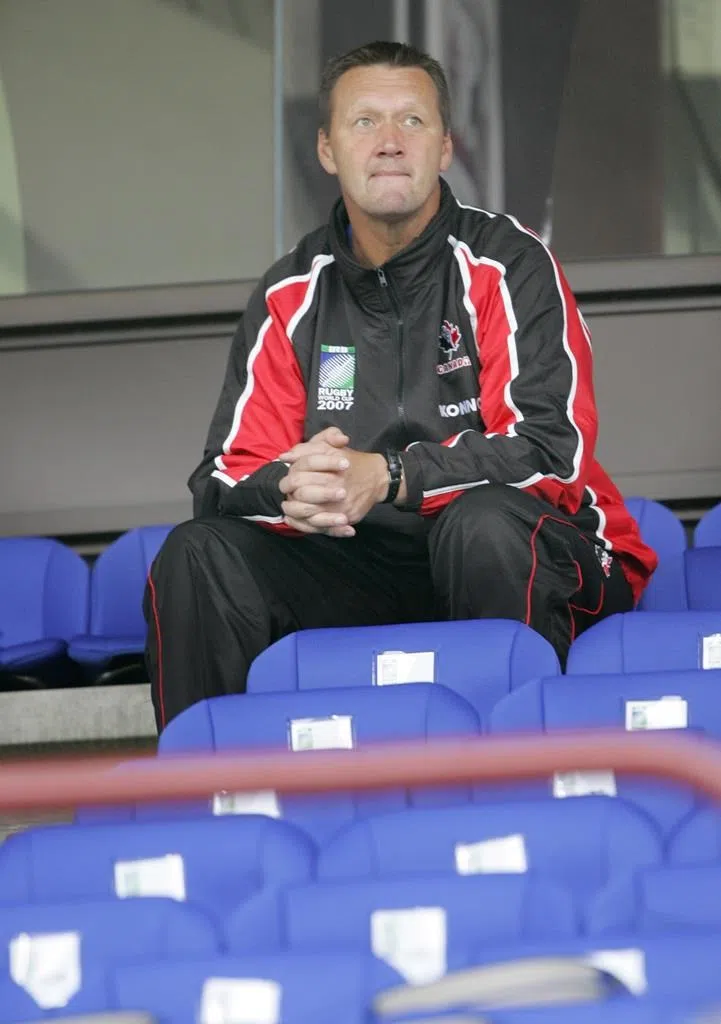
Canadian rugby coach Ric Suggitt dies suddenly at age of 58
LETHBRIDGE, Alta. — Canadian rugby coach Ric Suggitt, who guided national teams on both side of the border, has died. He was 58.
Suggitt, head coach of the women’s team at the University of Lethbridge, died Tuesday from a medical complication, according to a release from the school.
Suggitt, who joined Rugby Canada in 1999, coached the Canadian men at the 2007 Rugby World Cup. He also coached the Canadian men’s sevens team. On the women’s side, he guided the senior 15s team and under-19 and under-23 programs.
The Edmonton native led the U.S. women’s sevens team from 2010 through the end of the 2014-15 World Series season, helping the side qualify for the Rio Olympics and to a silver medal at the 2015 Pan American Games where it lost 55-7 to Canada in the final.


